Tiana Laurence, General Partner at Seed Catalyst provided a keynote, and seven Silicon Valley Innovation Program (SVIP) startups demonstrated their technologies, followed by a Choice and Global Interoperability panel discussion. See recordings from Day 2 below.
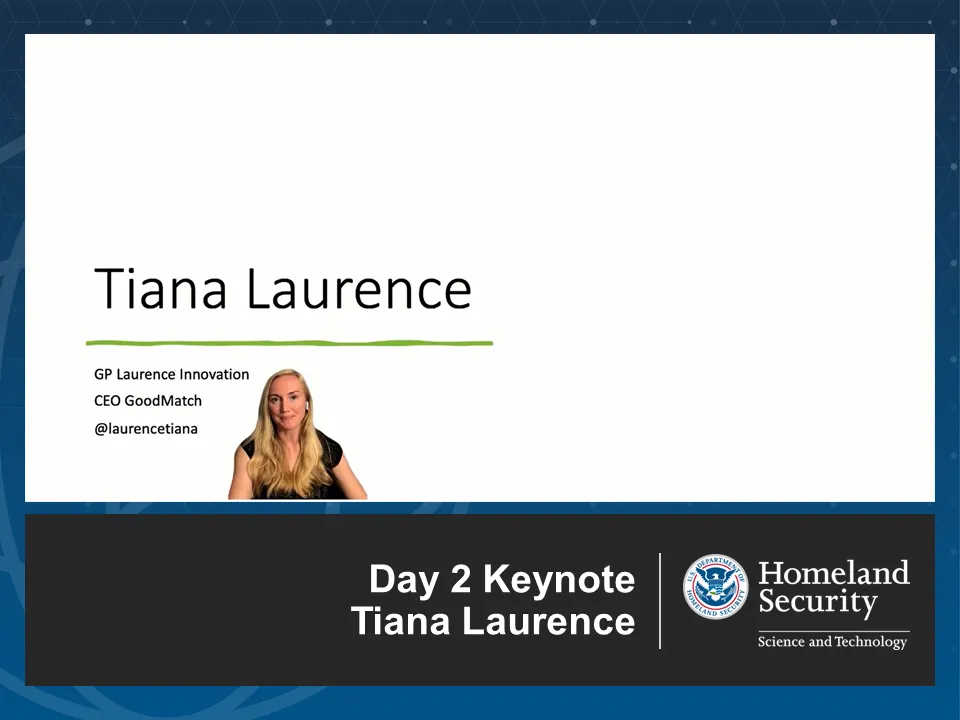 Day 2 Keynote. Tiana Laurence, General partner at Seed Catalyst, author, and founder, provides Day 2 keynote for the SVIP Demo Week.
Day 2 Keynote. Tiana Laurence, General partner at Seed Catalyst, author, and founder, provides Day 2 keynote for the SVIP Demo Week.
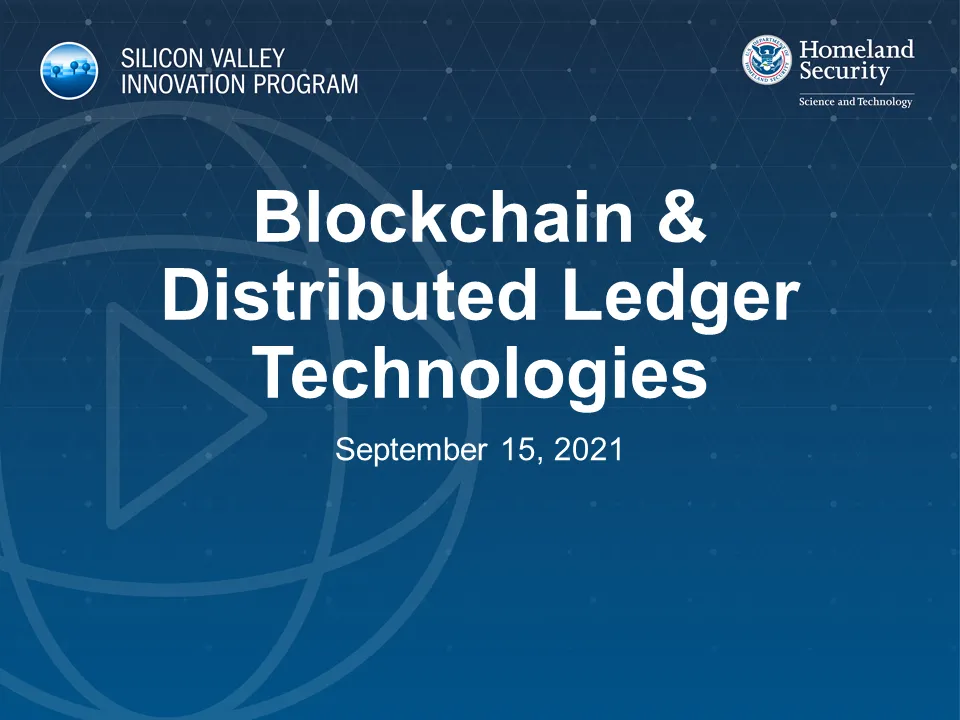 Blockchain and Distributed Ledger Technologies. SVIP Technical Director, Anil John, provides an overview of SVIP Demo Week Day 2 topic: Blockchain and Distributed Ledger Technologies.
Blockchain and Distributed Ledger Technologies. SVIP Technical Director, Anil John, provides an overview of SVIP Demo Week Day 2 topic: Blockchain and Distributed Ledger Technologies.
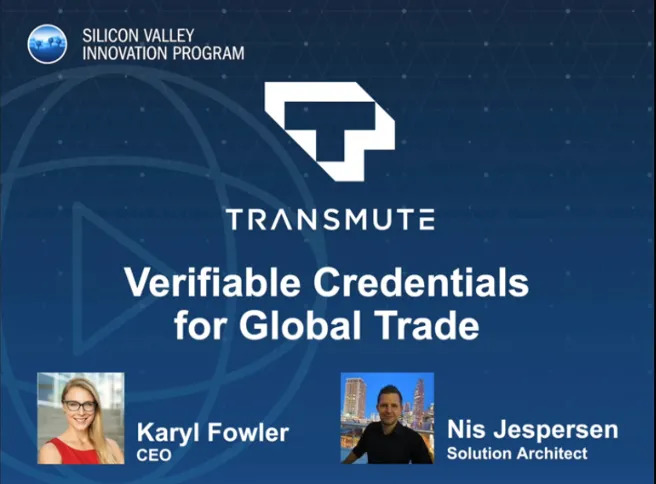 Transmute's work to date with Customs and Border Protection (CBP) and steel importers sought to tackle pervasive trade barriers, including fragmented paper-based processes, non-standard data formats, unknown upstream actors, and siloed technical systems. In its next phase, Transmute will equip CBP and other partner government agencies with actionable data sooner about in-bound steel products and e-commerce shipments including standards-based “verifiable” trade data about businesses in the supply chain, product origins, and shipment documents.
Transmute's work to date with Customs and Border Protection (CBP) and steel importers sought to tackle pervasive trade barriers, including fragmented paper-based processes, non-standard data formats, unknown upstream actors, and siloed technical systems. In its next phase, Transmute will equip CBP and other partner government agencies with actionable data sooner about in-bound steel products and e-commerce shipments including standards-based “verifiable” trade data about businesses in the supply chain, product origins, and shipment documents.
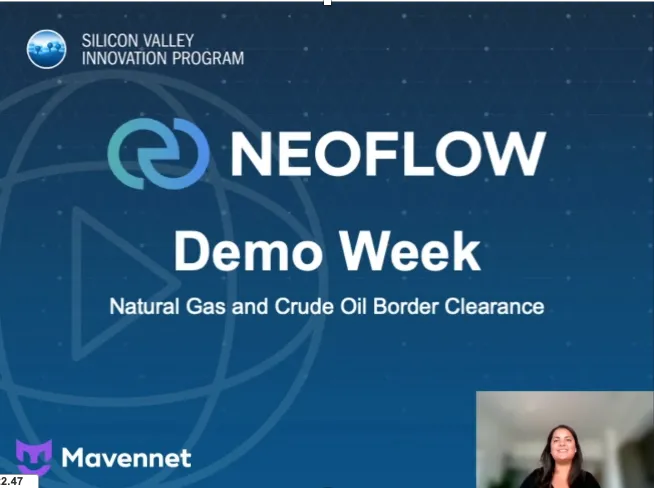 Mavennet is developing a platform called Neoflow to trace Canada to U.S. cross-border movements of oil and gas. Digital credentials created by Neoflow will allow the industry to securely exchange pre-arrival data and share the intent to transit or import oil and gas products in real time.
Mavennet is developing a platform called Neoflow to trace Canada to U.S. cross-border movements of oil and gas. Digital credentials created by Neoflow will allow the industry to securely exchange pre-arrival data and share the intent to transit or import oil and gas products in real time.
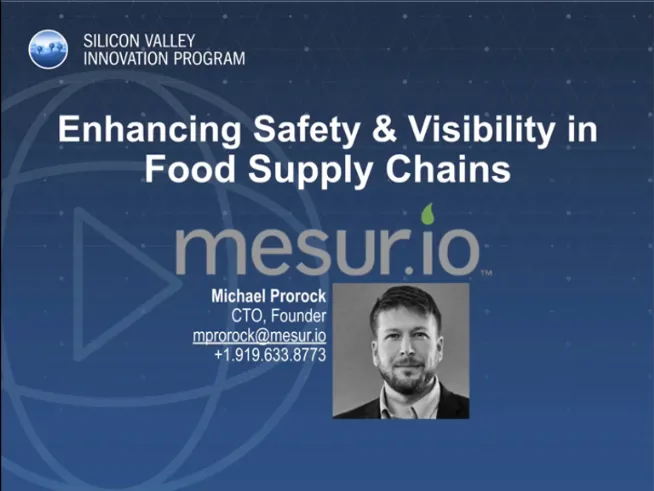 Mesur.io's Open Food Trust™ platform facilitates visibility into the food supply chain using open data standards, rather than proprietary data formats, without treating the farmer like a commodity. The platform brings traceability, field conditions, and food risks together in one place so that the farmer, food processors, and global leaders in food delivery can access their data, record the information they need, and share that data securely with appropriate regulatory agencies.
Mesur.io's Open Food Trust™ platform facilitates visibility into the food supply chain using open data standards, rather than proprietary data formats, without treating the farmer like a commodity. The platform brings traceability, field conditions, and food risks together in one place so that the farmer, food processors, and global leaders in food delivery can access their data, record the information they need, and share that data securely with appropriate regulatory agencies.
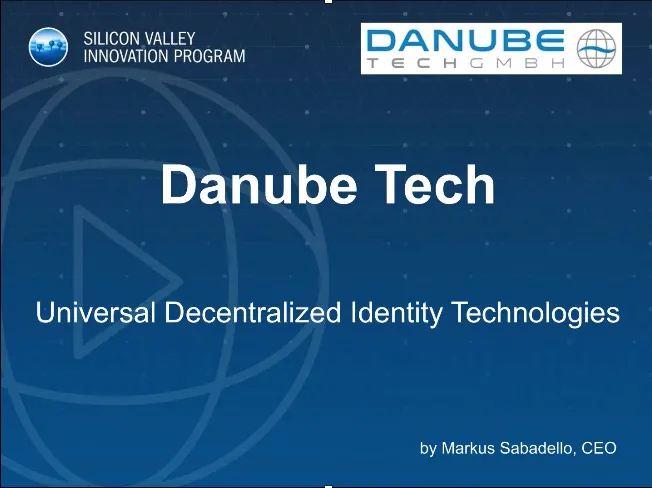 Danube Tech is collaborating with other companies on implementing a digital version of the U.S. Permanent Resident Card, using modern decentralized identity technologies such as decentralized identifiers and verifiable credentials. Danube Tech is especially interested in interoperability to avoid vendor lock-in and to connect different use cases, industries, and jurisdictions.
Danube Tech is collaborating with other companies on implementing a digital version of the U.S. Permanent Resident Card, using modern decentralized identity technologies such as decentralized identifiers and verifiable credentials. Danube Tech is especially interested in interoperability to avoid vendor lock-in and to connect different use cases, industries, and jurisdictions.
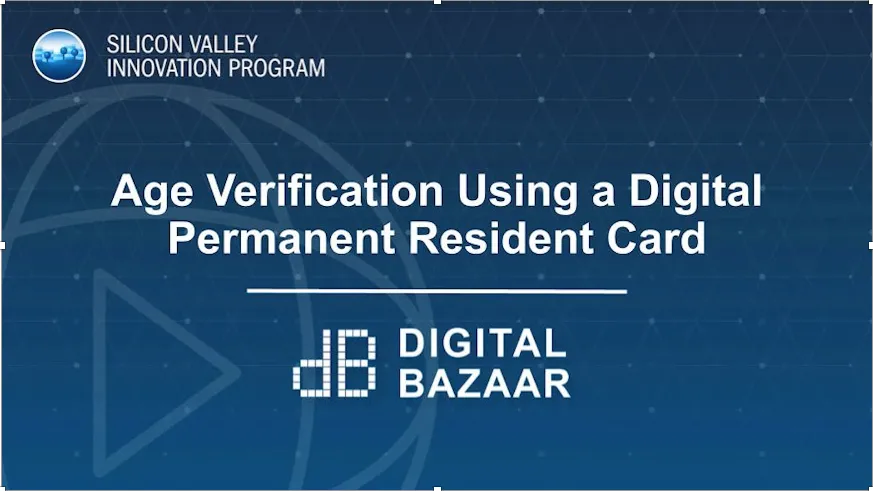 Digital Bazaar’s Interoperable Identity and Credential Life-cycle Management project is focusing on Red Teaming of the VeresTM decentralized identity ecosystem, including the VeresTM Issuer, Verifier, Wallet, and Veres One (a Decentralized Identifier Network), in preparation for production deployments to government and the private sector including citizenship and age verification use cases.
Digital Bazaar’s Interoperable Identity and Credential Life-cycle Management project is focusing on Red Teaming of the VeresTM decentralized identity ecosystem, including the VeresTM Issuer, Verifier, Wallet, and Veres One (a Decentralized Identifier Network), in preparation for production deployments to government and the private sector including citizenship and age verification use cases.
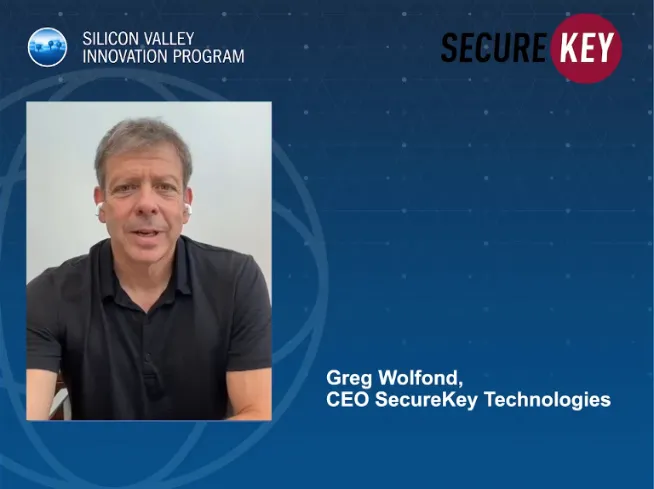 SecureKey is developing an interoperable system based on World Wide Consortium (W3C) standards that allows individuals to safely proof their identity to and exchange their identity attributes with various authorized organizations. The system provides a privacy enhanced data exchange with consented transactions by the user, a secure user agent, transaction auditing capabilities, and offers a standards-based interoperable implementation that supports integration with the competitive marketplace.
SecureKey is developing an interoperable system based on World Wide Consortium (W3C) standards that allows individuals to safely proof their identity to and exchange their identity attributes with various authorized organizations. The system provides a privacy enhanced data exchange with consented transactions by the user, a secure user agent, transaction auditing capabilities, and offers a standards-based interoperable implementation that supports integration with the competitive marketplace.
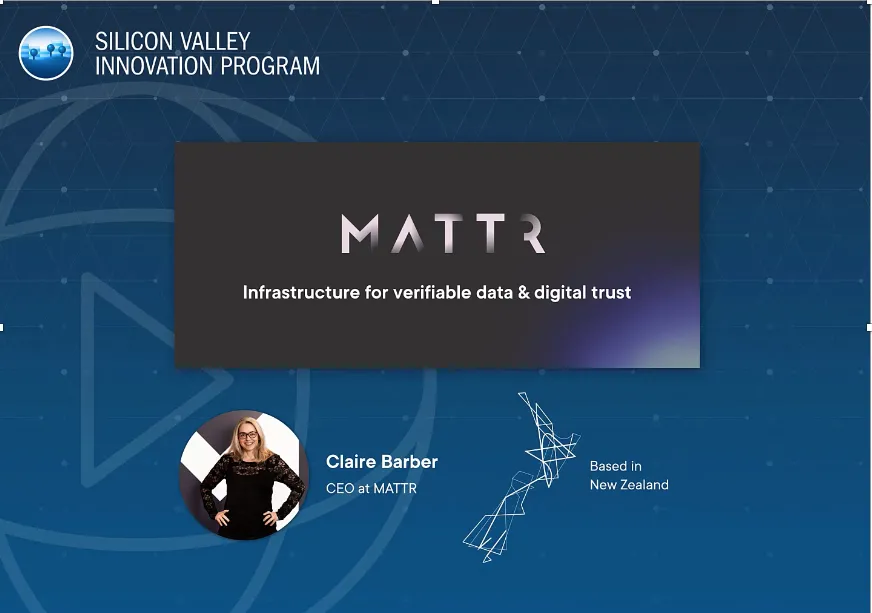 MATTR is extending earlier work on appointment and visa credentials and digital vaccination certificates, now focusing on building generalized capabilities to support the issuance of “any type” of verifiable credentials in the context of the U.S. Citizenship and Immigration Services environment. MATTR's project focuses on inclusion of credentials in paper-based documents, privacy respecting feature sets, techniques to support notarization scenarios (including privacy masking), solutions for wallet authentication, and expression of assurance levels during credential presentation.
MATTR is extending earlier work on appointment and visa credentials and digital vaccination certificates, now focusing on building generalized capabilities to support the issuance of “any type” of verifiable credentials in the context of the U.S. Citizenship and Immigration Services environment. MATTR's project focuses on inclusion of credentials in paper-based documents, privacy respecting feature sets, techniques to support notarization scenarios (including privacy masking), solutions for wallet authentication, and expression of assurance levels during credential presentation.
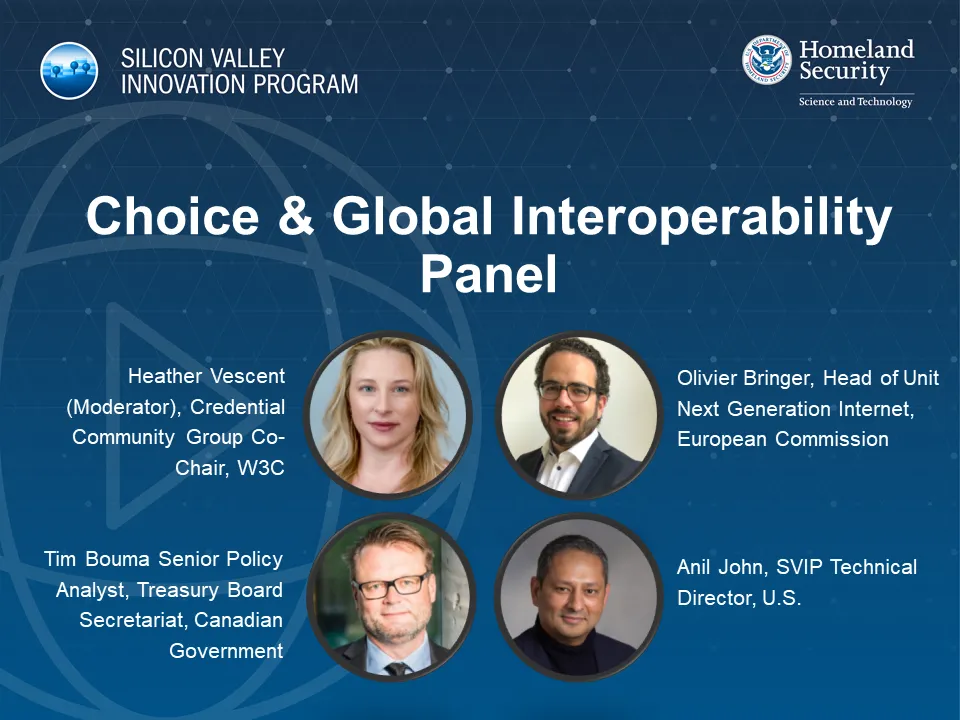 Choice and Global Interoperability. This panel provides a global perspective on how the World Wide Web Consortium standards are being used in various contexts and the approaches being taken to ensure global, cross-border interoperability of solutions.
Choice and Global Interoperability. This panel provides a global perspective on how the World Wide Web Consortium standards are being used in various contexts and the approaches being taken to ensure global, cross-border interoperability of solutions.
